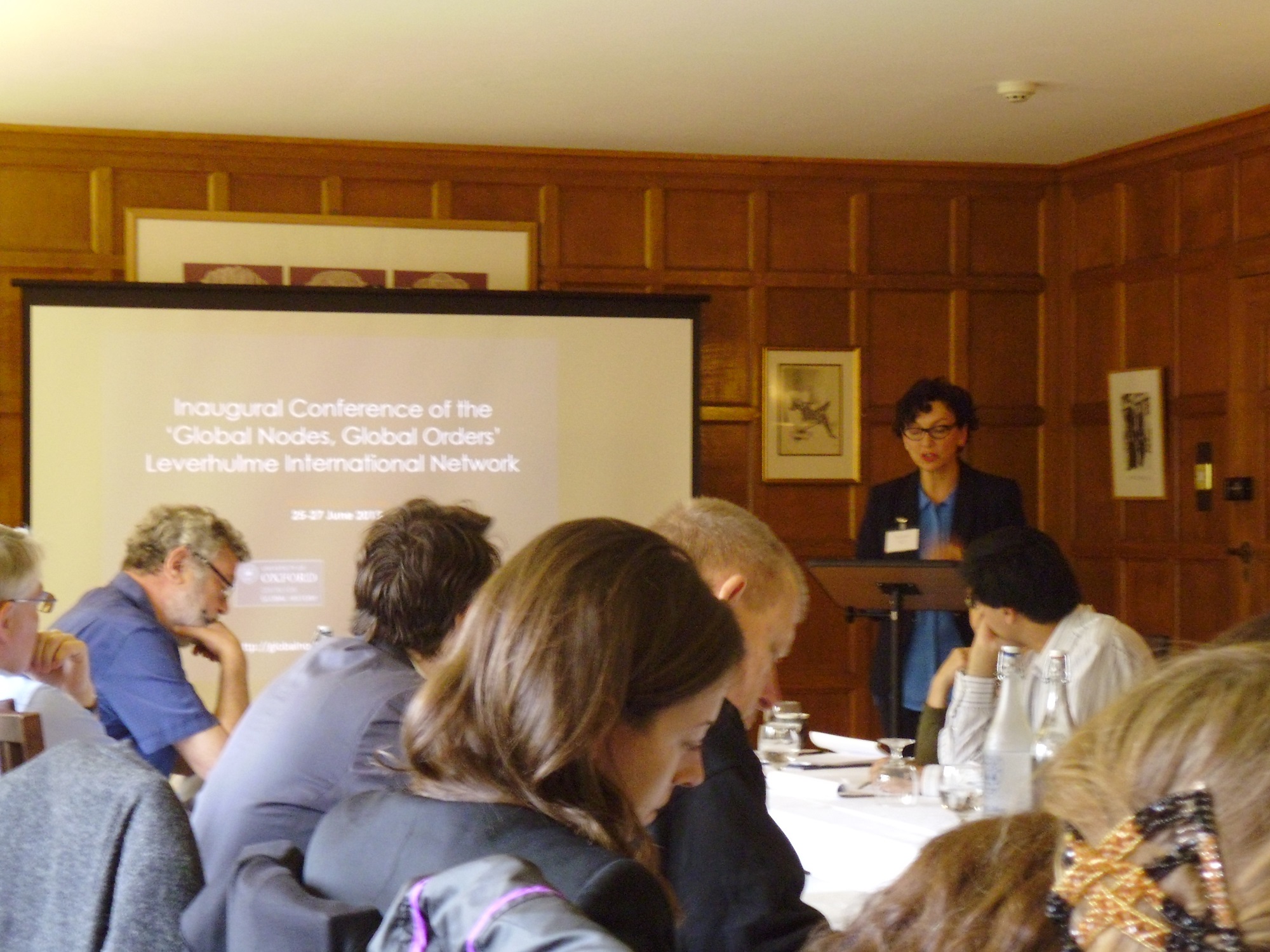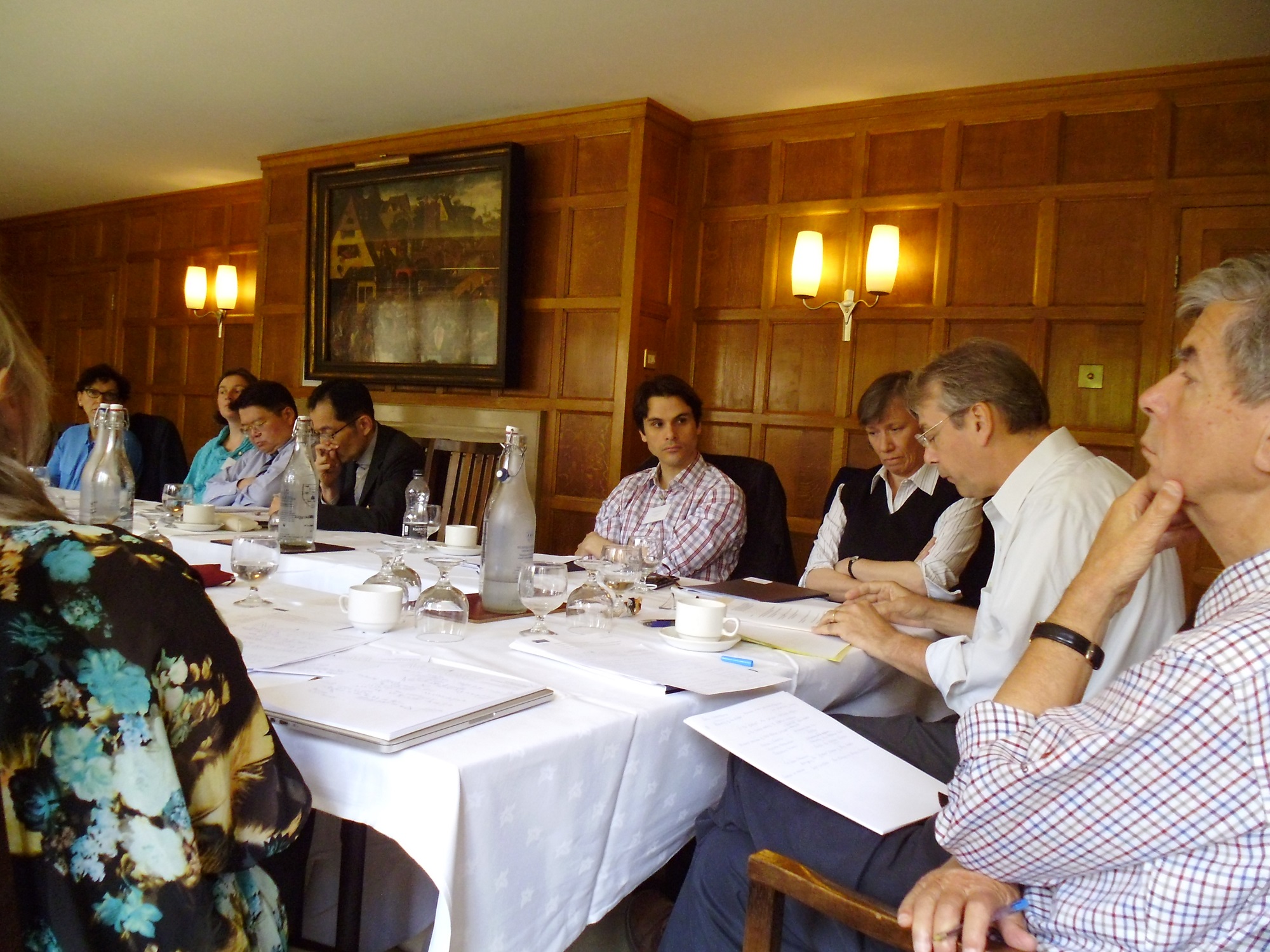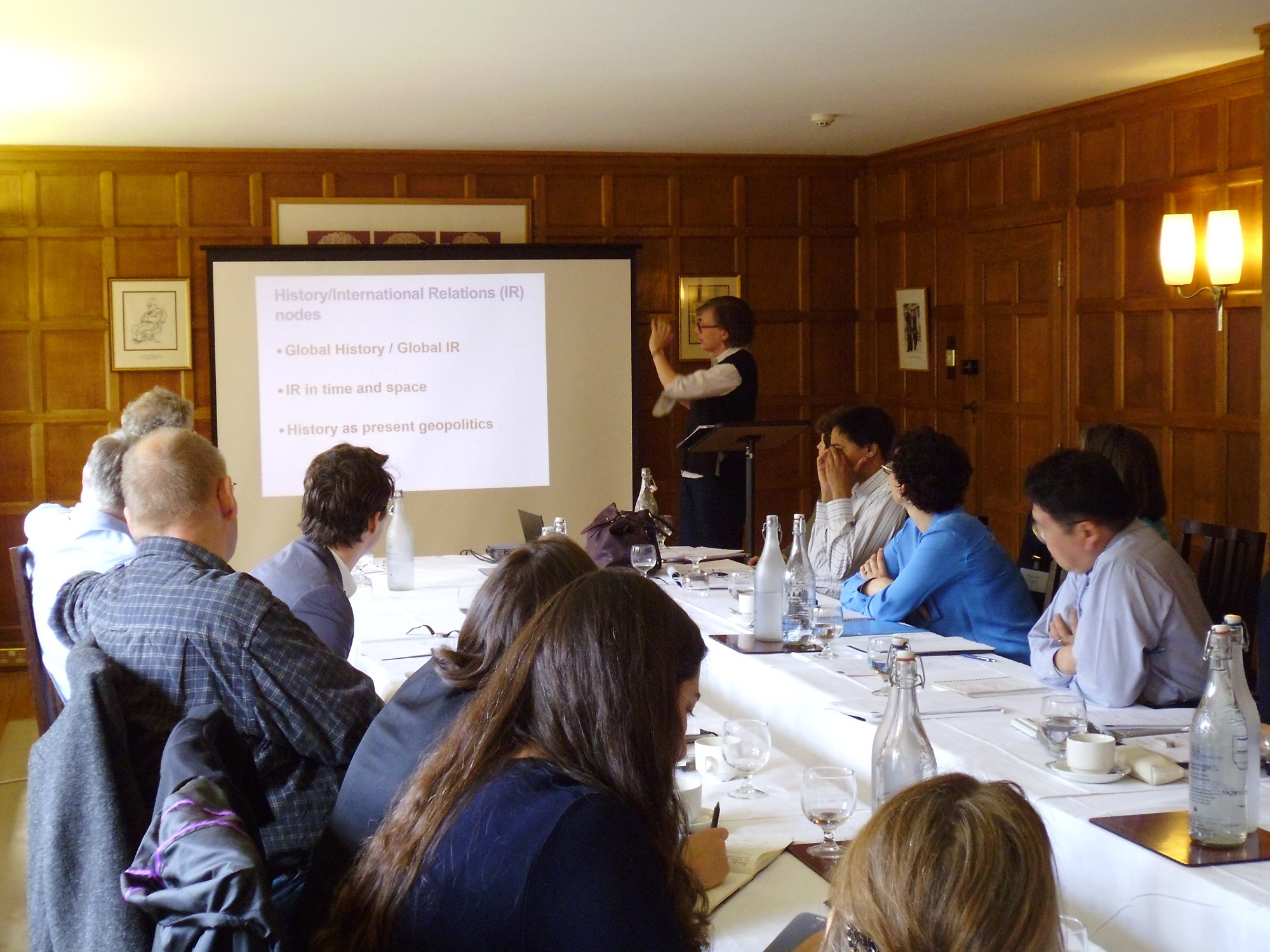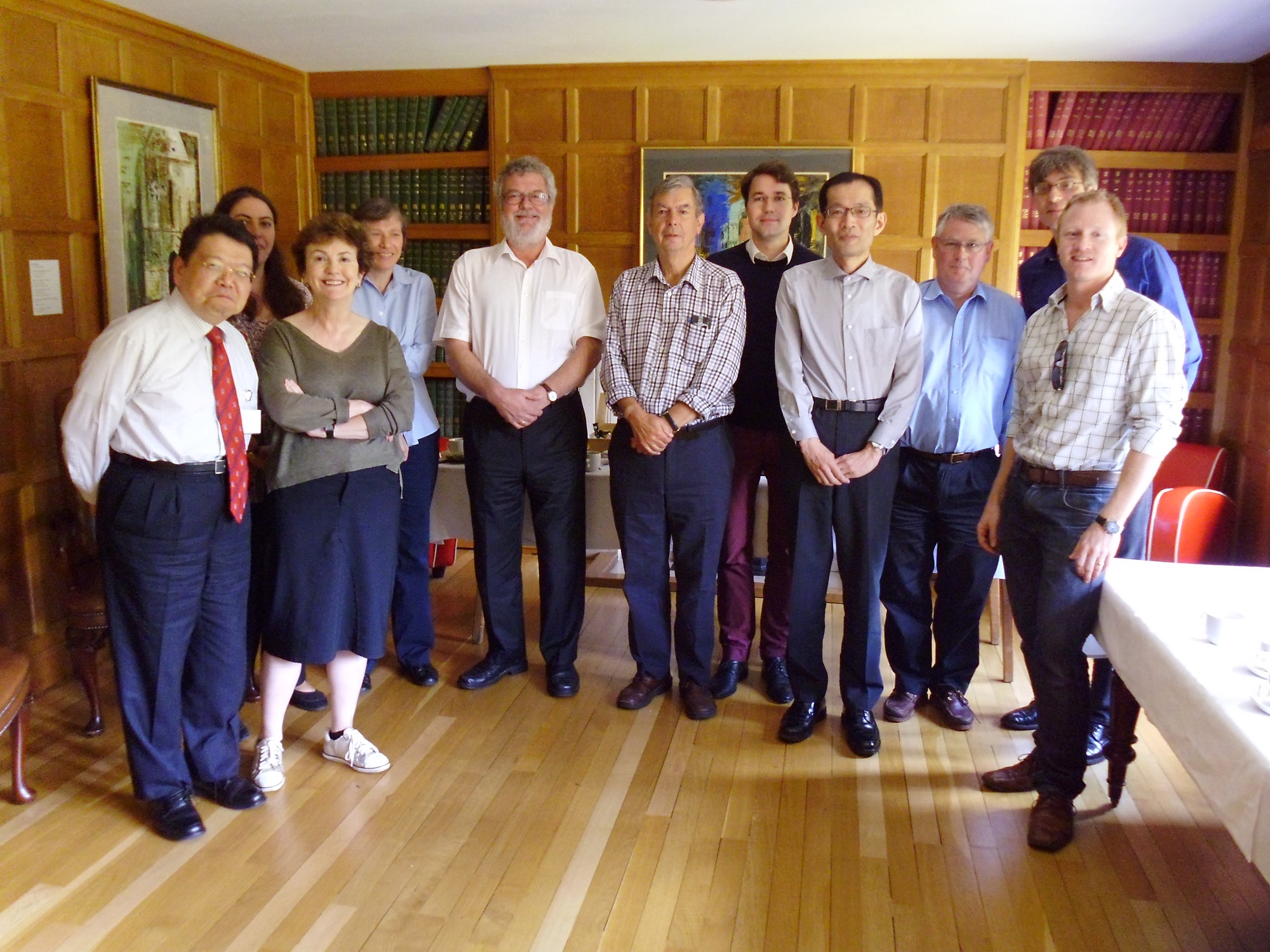Report: ‘Global Nodes, Global Orders’ Inaugural Conference
Oxford, 25-27 June 2015
In June this year, we held our inaugural ‘Nodes, Orders’ conference at Nuffield College, Oxford. It was paired with an Oxford Global History Centre conference on ‘Globalization and Uncertainly’, held earlier in the same week. The pairing illustrates our commitment to partnering-up with cognate projects, and to encouraging conversations across sub-disciplinary and disciplinary boundaries.
The inaugural conference kicked off with positioning papers from myself on pre-modern globalization and divergence and John Darwin, on nodes and networks. We then moved to ‘Nomad empires in global history’, showcasing an allied project led by Pekka Hamalainen. It is clear that nomad polities, Xiongnu to Comanche, will feature increasingly large in global history. Sessions on the ‘Global Middle Ages’ and Early Modern Globalization followed. In the former, Nicholas Purcell expanded his Mediterranean world, Catherine Holmes updated us on the Global Middles Ages project (another allied initiative), and Lesley Abrams gave us a global perspective on the ‘Viking’ world. In the latter session, Catia Antunes, representing our Leiden partners, enlightened us on how merchant networks can stretch across cultures, a theme I hope we can pursue. Regarding this session, I am particularly grateful to Anne Gerritsen, for joining us despite late notice, and to my Balliol colleague, John-Paul Ghobrial, for bringing in the crucial religious dimension.
On the second day we moved forward in time and outward in theme to ‘Global Orders’, with the first session featuring Linda Colley (our lead Princeton partner) on globalizing constitutions, Patricia Clavin on globalizing security, and Rana Mitter on globalizing the non-European. Next up, leading IR scholars Andy Hurrell, John Ikenberry and Karoline Postel-Vinay presented on ‘Contested Narratives of the Global’ – yet another project allied to our network. In the first afternoon session, our Osaka partners Shigeru Akita and Shiro Momoki spoke on modern and pre-modern East Asian perspectives on global history, with Oxford colleague Micah Muscolino supplying the environmental dimension. We ended the main sessions with Moritz von Brescius and Christof Dejung providing a Konstanz perspective on the challenge of global history.
Saturday morning was devoted to consideration of future workshops, and to a closing session on potential synergies with the Global Narratives IR project, and to isolating key concepts for applied global history: nodes, orders, ‘connectivities’ or sub-global ‘worlds’, and global processes. These concepts will supply the themes of our next meetings, at Osaka on 15-17 March 2016, guided by Shigeru Akita, and in Konstanz on 13-15 October 2016, guided by Juergen Osterhammel. Let me register my thanks to Claire Phillips, John Darwin and Rana Mitter for crucial roles in the inaugural conference.
James Belich (Conference Organiser/Principal Investigator), Claire Phillips (Network Facilitator)
 Patricia Clavin on ‘Globalizing Security’.
Patricia Clavin on ‘Globalizing Security’.
 John Ikenberry on ‘Conflicting Narratives of the Global’.
John Ikenberry on ‘Conflicting Narratives of the Global’.
 Karoline Postel-Vinay ‘Conflicting Narratives of the Global’.
Karoline Postel-Vinay ‘Conflicting Narratives of the Global’.
 From left: Shigeru Akita, Catia Antunes, Linda Colley, Karoline Postel-Vinay, James Belich, John Darwin, Moritz von Brescius, Momoki Shiro, Andrew Hurrell, Christof Dejung, Bryan Miller.
From left: Shigeru Akita, Catia Antunes, Linda Colley, Karoline Postel-Vinay, James Belich, John Darwin, Moritz von Brescius, Momoki Shiro, Andrew Hurrell, Christof Dejung, Bryan Miller.
